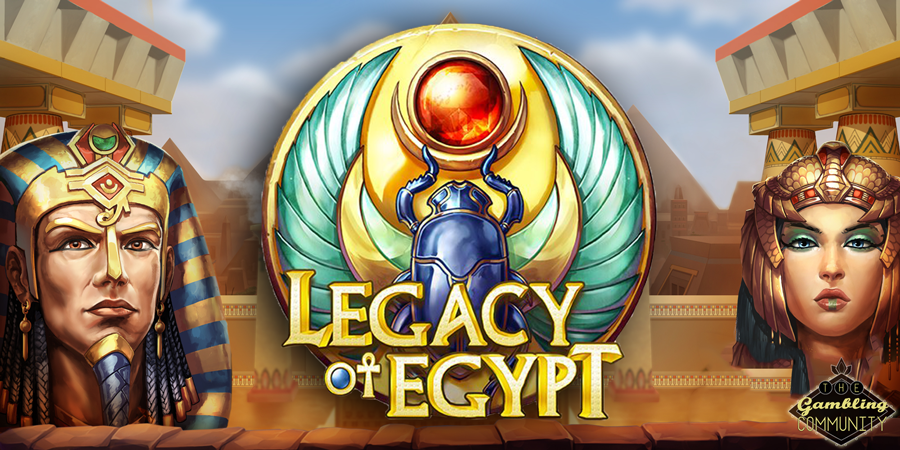George Granville Monah James (November 9, 1893 – June 30, 1956)[1] was a Guyanese-American historian and author, known for his 1954 book Stolen Legacy, which argues that Greek philosophy and religion originated in ancient Egypt.
- 2Stolen Legacy
Jul 30, 2018 Stolen Legacy: The Egyptian Origins of Western Philosophy George G M James on Amazon.com.FREE. shipping on qualifying offers. 2015 Reprint of 1954 Edition. Full Facsimile of the original edition. Not reproduced with Optical Recognition Software. James argued that Egypt was the true source of the Mystery teachings and therefore any claim to such origin by the ancient Greeks is not.
Biography[edit]
James was born in Georgetown, Guyana. His parents were Reverend Linch B. and Margaret E. James. George earned bachelor's and master's degrees at Durham University in England and gained his doctorate at Columbia University in New York. He was Professor of Logic and Greek at Livingstone College in Salisbury, North Carolina before working at Arkansas AM&N College in Pine Bluff, Arkansas. James died soon after publishing Stolen Legacy in 1954.[2] James was a freemason and was associated with Prince Hall Freemasonry.[3]
Stolen Legacy[edit]
James was the author of the widely circulated Stolen Legacy: The Greeks Were Not the Authors of Greek Philosophy, But the People of North Africa, Commonly Called the Egyptians (also known as Stolen Legacy: Greek Philosophy is Stolen Egyptian Philosophy), first published in 1954.
In this book, James claims that, among other things, the ancient Greeks were not the original authors of Greek philosophy, which he argues was mainly based on ideas and concepts that were borrowed without acknowledgement, or indeed stolen, from the ancient Egyptians. He argues that Alexander the Great 'invaded Egypt and captured the Royal Library at Alexandria and plundered it', that Aristotle's ideas came from these stolen books and that he established his school within the library. The book draws on the writings of freemasonry to support its claim that Greco-Roman mystery religion originates from an 'Egyptian Mystery System'.[4][a]
James invokes Greek sources such as Herodotus who describe the cultural debt of Greece to Egypt. He also mentions prominent Greek philosophers such as Pythagoras and Plato who are said to have studied in Egypt. He attributes Democritus's use of the term atom (indivisible particle) to the Egyptian deity Atum, who symbolizes completeness and indivisibility.[5]
Responses[edit]
Stolen Legacy and its thesis have been controversial since the book was published. Ronald B. Levinson dismissed the book in a 1955 review, writing that 'only social psychologists and collectors of paradoxes will find here grist for their mills' and presenting some of James's claims as self-evidently ridiculous.[6]
William Leo Hansberry in 1955 wrote in support of the book's key premises, including the conclusion
that in view of the remarkable similarities between the basic ideas and concepts as expressed in the Egyptian inscriptions and in the writings and teachings of the Greek philosophers, it may be very reasonably assumed that it was from the Egyptian priests and teachers with whom the Greeks associated during their travels in Egypt that they acquired many, if not most, of the philosophical concepts which they, without mentioning their origin, subsequently passed off as their own and for which they have been so long—and so unjustly—renowned.
Hansberry acknowledged that the book might contain some errors and would upset Hellnophiles, but pointed to the work of established historians such as James H. Breasted in support of the theory of Egyptian influence on Hellenistic culture.[7]
Stolen Legacy has strongly influenced the Afrocentric school of history, including leading exponents such as Asa Hillaird, Yosef Ben-Jochannan and Molefi Kete Asante.[2][8]
Lefkowitz–Bernal arguments[edit]

In the 1990s, classics professor Mary Lefkowitz emerged as a prominent critic of Afrocentrism and of James. Her critique of Stolen Legacy makes the following arguments:[8]
- Ancient Egypt was racially mixed (and therefore its cultural legacy does not represent an inherently 'black' or 'African' contribution).
- Stolen Legacy is unscholarly, relying heavily on repetition of claims about Alexander's 'theft' of Egyptian material, and lacking precise footnoting.
- Alexandria was founded after Alexander's conquest of Egypt and never integrated into Egyptian society, and the Library of Alexandria was built still later; therefore, it contained no repository of Egyptian culture for the immigrant Greeks to steal.
- James misrepresents his masonic sources, who in discussing the 'Egyptian mysteries' actually mean Greco-Roman mysteries operating in Egypt, and cites other outdated sources on Egypt which do not take modern scholarship into account. ('Thus most ironically,' she writes, 'the 'Egyptian Mystery System' described by James is not African, but essentially Greek, and in its details, specifically European.')
- The Egyptian writings (notably the Hermetic Corpus) that James presents as predecessors to Greek philosophy were composed in the Hellenistic period.
- Similarities found by ancient writers between Greek and Egyptian deities do not imply Egyptian origin. Egyptian philosophy does not include a doctrine of transmigration of souls. Other purported connections in mathematics, science, and philosophy are also insubstantial.
- The great philosophers Socrates and Aristotle are not said to have traveled to Egypt.

Martin Bernal, author of the Black Athena trilogy which also argues for Egyptian influence on Greece, in turn criticized Lefkowitz for poor sourcing, double standards for evidence, and omission of key details. Bernal points to modern scholarship indicating pre-Hellenistic origins of the Hermetic Corpus. Bernal argues that archaeological data, as well as Greek and Latin sources, demonstrate a diffusion of the cult of Isis, mystery religion, and initiation ceremonies from Egypt to Greece. Finally, Bernal recapitulates the historiographical argument of Black Athena Volume 1 that the 'Ancient Model' of Egyptian influence on Greece was standard until it was eclipsed in the 19th century, for ideological reasons, by the 'Aryan Model'.[5]
Lefkowitz, replying in the same journal, wrote that Greek philosophy borrowed from Egypt, but neither 'borrowed massively' nor 'stole', and Greece was influenced by other cultures as well. She responds to his critique of her reading of Diodorus and clarifies other points. She remonstrates that Bernal uses needlessly charged terms such as 'attack', 'rage', and 'Aryan', which distract from the matter at hand.[9]
Bibliography[edit]
- James, George G. M. Stolen Legacy: Greek Philosophy is Stolen Egyptian Philosophy. Philosophical Library, 1954.
Notes[edit]

- ^James's chief reference on the Egyptian mysteries is C.H. Vail, author of Ancient Mysteries and Modern Masonry (1909). Vail's source is Morals and Dogma of the Ancient and Accepted Scottish Rite of Freemasonry (1872) by Albert Pike.
References[edit]
The Legacy Of Egyptian Civilization
- ^'An Investigation into the Death of Professor George G. M. James', Medium, December 29, 2015.
- ^ abGwinyai Muzorewa, 'Stolen Legacy'; in Molefi Kete Asante & Ama Mazama (eds), Encyclopedia of Black Studies; Thousand Oaks: SAGE, 2005; p. 440.
- ^'The secret history of the jazz greats who were freemasons'. The Guardian. 2 July 2014.
- ^Carroll, Robert Todd (2003). The Skeptic's Dictionary: A Collection of Strange Beliefs, Amusing Deceptions, and Dangerous Delusions. Hoboken, New Jersey: John Wiley & Sons, Inc. p. 8. ISBN0-471-27242-6. See 'Afrocentrism' in online Skeptic's Dictionary.
- ^ abMartin Bernal, 'The Afrocentric Interpretation of History: Bernal Relies to Lefkowitz', Journal of Blacks in Higher Education 11, Spring 1996.
- ^Ronald B. Levinson, book review in Books Abroad, 29(2), Spring 1955, p. 232.
- ^William Leo Hansberry, Book review in the Journal of Negro Education 24(2), Spring 1955.
- ^ abMary Lefkowitz, 'The Myth of a 'Stolen Legacy', Fraud 31(3), March/April 1994; doi:10.1007/BF02693227.
- ^Mary Lefkowitz, 'An Afrocentric Interpretation of Western History: Lefkowitz Replies to Bernal'; Journal of Blacks in Higher Education 12, Summer 1996.
Ancient Egypt Legacy
External links[edit]
- Stolen Legacy editions listed on WorldCat.
- Charles D. Johnson, 'An Investigation into the Death of Professor George G. M. James' concerning a claim formerly made on Wikipedia that James died violently shortly after Stolen Legacy was published.



